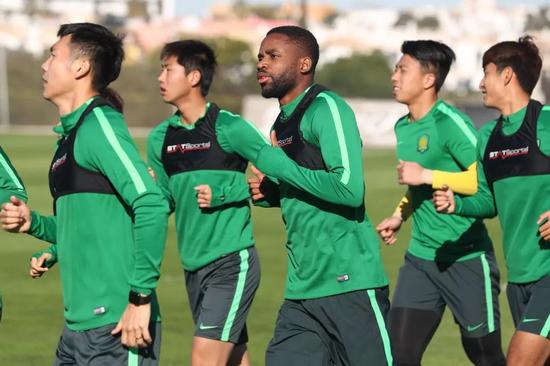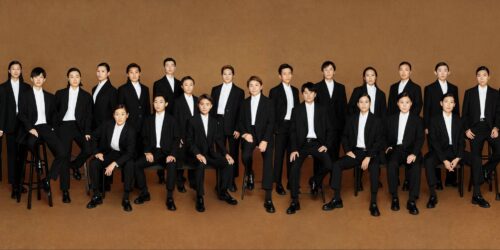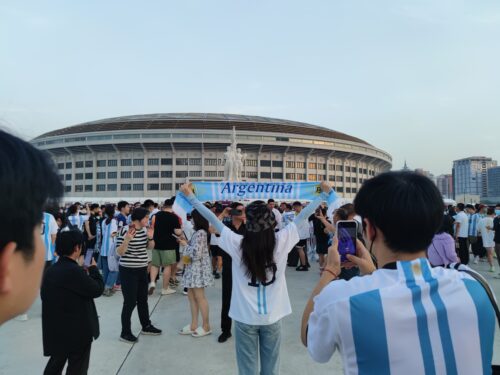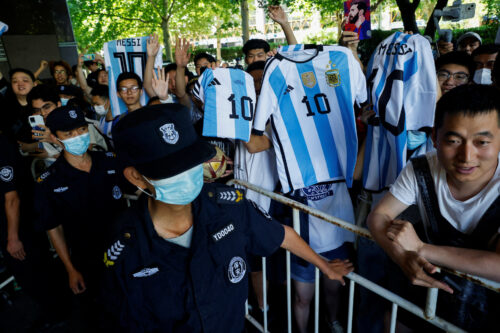Ways in which Chinese football teams circumvent every rule

The China Sports Column is a The China Project weekly feature in which China Sports Insider Mark Dreyer looks at the week that was in the China sports world.
A newly arrived foreigner in China could be forgiven for thinking there are a lot of rules. But the trick to being successful, he or she might soon learn, isn’t learning to follow the rules, but mastering the act of working around them.
There are countless examples: couples divorcing in order to take advantage of a property policy that benefits singletons, parents demanding that students be allowed to bring transmitting devices to school in order to cheat on exams, local officials inflating economic data to win promotions.
But nowhere is rule-bending more prevalent in Chinese society than in Chinese soccer.
When reform plans for the sport were announced three years ago, much of the resulting boom was fueled not by those with a genuine interest in promoting the game, but by hot money looking to ride the wave and make a quick buck.
A story once told to your correspondent relays how more than 100 entities rushed to register themselves as football clubs with the Beijing Football Association the day following the announcement of the sport’s reforms. It’s a safe bet that the majority of those entities were not in fact football clubs, nor were they ever intending to be — they simply wanted a piece of China’s latest pie, and planned to pass themselves off as grateful recipients.
And so we come to soccer’s latest rule-bending, found in the highest echelon of the sport in China: the Chinese Super League (CSL).
The CSL, as directed by the Chinese Football Association (CFA), has attempted to accomplish two objectives over the past year or so: 1) clamp down on overspending by restricting the amount of money paid in transfer fees to overseas clubs or in wages to foreign players, and 2) promote the development of young Chinese players.
The intention behind both of these aims is admirable, but as I’ve written before, it’s been a little trickier putting them into action.
A rule was introduced last season that forced all CSL teams to start at least one under-23 domestic player and have another one on the bench. But nothing was said with regards to how many minutes these players had to play. With varying degrees of brazenness, the U23s were often hauled off in the first few minutes of each game, effectively sacrificing a substitution to legally circumvent the rules — but kicking the spirit of those rules squarely in groin.
For this season, teams have to play at least as many U23s as foreigners in any one game, with a maximum of three foreigners allowed — but, again, no specifics have been provided. Expect, then, to see a foreign trio play the entirety of games, with three youngsters subbed off shortly after kickoff (or, more likely, brought on in the closing seconds.)
That’s something to look for in the weeks to come, but let’s put the focus on something more immediate: expensive foreign players. The CFA’s solution to this problem was to impose a 100 percent tax on all foreign transfers that surpass 45 million yuan ($7.1 million) — a tiny amount in today’s global transfer market — which would either, the CFA thought, prevent further big-name transfers or fill its own coffers, both tolerable outcomes.
But Chinese clubs being what they are, they set about finding loopholes.
After Tianjin Quanjian failed to agree to a transfer fee with FC Köln for French striker Anthony Modeste last summer — presumably because Tianjin didn’t want to pay double the usual amount — the squad circumvented the new tax by taking Modeste on an expensive two-year loan — but still vastly cheaper than buying the player outright — with an option to buy at the end of the term, by which point the rules may well have changed once again.
This week, Hebei Fortune bought Javier Mascherano from FC Barcelona for the suspiciously convenient price of 43.3 million yuan — just shy of the point at which the tax kicks in — even though some reports say Barcelona will end up getting almost twice that amount. The insinuation is that Hebei pays Mascherano more than he was previously getting, with some of that additional money used to “top up” the transfer fee behind the scenes, leaving all three parties happy — and the CFA powerless.
The highest profile transfer saga of this winter concerns Cedric Bakambu, who has already been pictured training with his new Beijing Guoan teammates at their camp in Portugal. But the club, laughably, is still insisting it doesn’t know anything about the deal. The reason for this is that Bakambu has a €40 million ($49.7 million) release clause to leave Spain’s Villareal, but that money is a lot for Guoan to have to pay into the CFA’s slush fund. So here’s how they are presenting the deal to the authorities: the player himself or a third party will pay the €40 million release fee to Villareal; Guoan will sign the player on a “free transfer”; no transfer tax is then necessary, even if it clearly cost the club €40 million to bring the player to China.
No Chinese football fan will particularly mind seeing the CFA get screwed again, such is its reputation, but the league is in a tough spot. Everyone can see that Guoan is attempting to pull the wool over the CFA’s eyes, but by the letter of the law, Guoan is doing nothing wrong.
There are a couple of things the CFA could — and should — have done to prevent this. First, issue an edict explaining the intention of the rules and saying that the spirit of these rules must also be observed. Second, set a commission or panel to grant final approval on transfers, meaning that clubs would soon discover what is considered acceptable.
In 2010, the NHL’s New Jersey Devils tried to re-sign Russian winger Ilya Kovalchuk to a ludicrous 17-year deal, ostensibly because they had found a loophole in the salary cap rules that they wanted to use to their advantage. The league rejected the contract and fined the club, though by later accepting a reduced, but still massive, 15-year deal for Kovalchuk, a precedent had been set for clubs around the league to follow.
Things are always less straightforward in China, not least because of the watchful eye of the government. In theory, the CFA is now free of government control — as FIFA rules dictate it must be — but in practice, it’s very much still business as usual, with the State General Administration of Sports (China’s sports ministry) and, above that, the State Council still calling the shots when it comes to major policy decisions.
That leaves the CFA stuck between a rock and hard place, with sources there telling your correspondent that no one really knows what to do about the Bakambu issue, hence why it has been allowed to drag on in this manner.
The most likely outcome is that the CFA will attempt to provide some clarity on the situation, but will fall way short. However, you can be sure that whatever the decision is — whether it concerns activity on or off the pitch — the clubs will immediately set their minds on staying one step ahead in the cat and mouse game that is Chinese soccer.
Also this week:
- As China orders students to take skiing lessons, here’s a look at how the Olympics turned China on to skiing. Meanwhile, Beijing 2022 venues are due to be completed by next year.
- In tennis, the WTA Finals is moving to Shenzhen in a massive 10-year deal. Meanwhile, don’t trust the stats in this Forbes piece, but the trend of more Chinese spectators at the Australian Open is legitimate — even as some idiots Down Under stir up controversy by slamming the use of Chinese water brand Ganten at a tournament that specifically bills itself as “The Grand Slam of Asia/Pacific.”
- LeBron James has supplanted Stephen Curry at the top of NBA jersey sales in China.
- You might have read that China is set to ban tattoos from TV shows — but will that affect sports programming? Badminton star Lin Dan, for example, sports five tattoos, including a Christian cross.
- AFP’s Peter Stebbings has been busy, with a profile of China’s “legend” sports photographer still going strong at 79, plus a look at Feng Shanshan, China’s world No. 1 golfer and a “guinea pig.”
- Finally, in football news: A former player says Shanghai Shenxin had no interest in getting promoted to the CSL, the decline of China’s half-Korean soccer team, and an entertaining read of what it means to be a Shenhua fan.
The China Sports Column runs every Friday on The China Project. Follow Mark Dreyer @DreyerChina.





